When visiting a park, one of the things you have to worry about is bugs. In previous posts, on Yosemite and Joshua Tree, it is evident that bug spray is a must for campers and hikers in the US. In this article, I examine if there is a need to protect yourself from bugs in Zion, a park known for some of the best natural swimming spots in Utah.
Do you need bug spray in Zion National Park? It is recommended to use bug spray in Zion National Park. The reason being is that the park has a lot of bugs that include mosquitoes, ants, flies, spiders, and scorpions. Among these are species that will sting, bite, and even transmit diseases.
In this post, I will cover the common bugs found in Zion. I will also point out the areas that are most likely to be bug-infested as well as which seasons they thrive the most. Do you know how to use a repellent correctly? This post will also take you through how to effectively use bug spray, to keep them off.
Are There Mosquitoes in Zion National Park?

Whenever anyone talks of bugs, it’s usually mosquitoes that come to mind. Not only are they noisy but mosquitoes are also known to transmit deadly diseases. As a matter of fact, they lead to the deaths of over 700,000 people every year. At home, it’s easy to control mosquitoes but in the outdoors keeping them off can be difficult.
Are there mosquitoes in Zion National Park? In Utah, there are at least 49 species of mosquitoes. Zion National Park has dozens of these species with individual numbers reaching thousands. You will find these bugs in ditches, swimming holes, rivers, and potholes within the park. In particular, Zion experiences a high number of mosquitoes during summer (when it rains).
Breeding areas for bugs and mosquitos in Zion include water bodies such as rivers, pools, and wooded parts of the park.
Why do mosquitoes increase during summer? These bugs need warmth and water to thrive, and during Summer, Zion has plenty of both. Starting in mid-May all the way to mid-September, Zion gets lots of rain and the water levels rise in most areas throughout the park, including the Virgin River that runs through Zion.
The summer days also come with temperatures as high as 1000 F. As such, you will find mosquitoes in most areas around the park. As the rain reduces, starting from the fall season, the number of mosquitoes starts decreasing.
That said, there are mosquitoes in Zion all year round. So, no matter the season, using mosquito repellent in Zion National Park is recommended.
Fact: It takes just a little water to make a home for mosquitoes. Picture this: a single beer can filled with water can become a habitat for over 300 mosquitoes.
Other Common Bugs in Zion National Park
Are you afraid of bugs? Apart from mosquitoes, thousands of other bugs call Zion their home. These are crawling and flying insects that are known to be bothersome.
While some bugs such as spiders can bite, others like flies will contaminate your food. So, what are some of the common bugs in Zion that you should protect yourself from?
Spiders
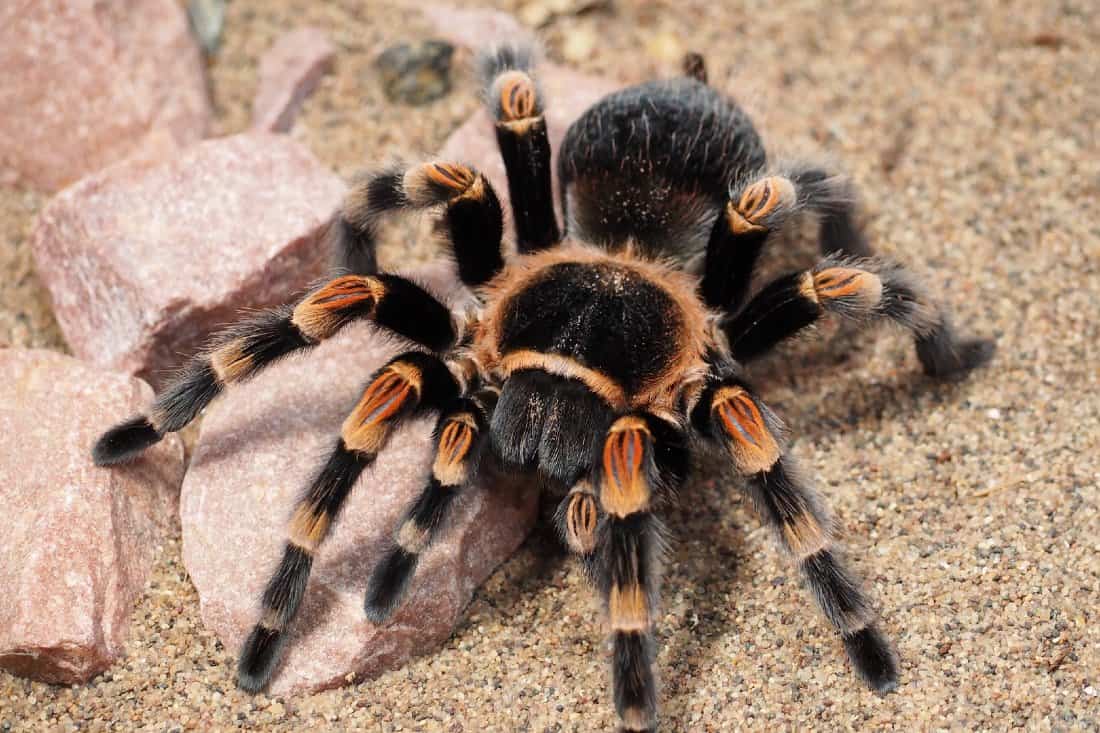
Spiders are bugs classified under the scientific name Arachnida. In Zion, there are different types of spiders including some that are so small that you probably won’t even see them. The other ones are tarantulas – those are the big and hairy ones.
Usually, spiders do not bother humans and will actually keep away from you. However, this does not mean that they are harmless. If they feel threatened, they will bite.
Typically, a spider’s venom will not make you sick but can cause an itch and redness on your skin. Also, if left overnight inside your tent, these bugs will make webs on everything including your water bottles and hiking shoes.
Don’t be surprised if you end up taking spider eggs back to your home after visiting Zion National Park. Spiders lay lots of eggs, usually inside their webs. So, be sure to check for webs before you leave the park.
You will find spiders in dead trees and holes on the grounds. Also, they live near areas with other bugs such as flies which they feed on. Others like the weaver spiders build webs over water. These are the kinds that you will likely find near Zion hiking trails along the Emerald Pools, Virgin River valley, and The Narrows.
Most important, spiders are nocturnal animals. What this means is that they are most active at night. Their numbers increase during summer and fall, and as such you will find them all over, even during the day.
Scorpions
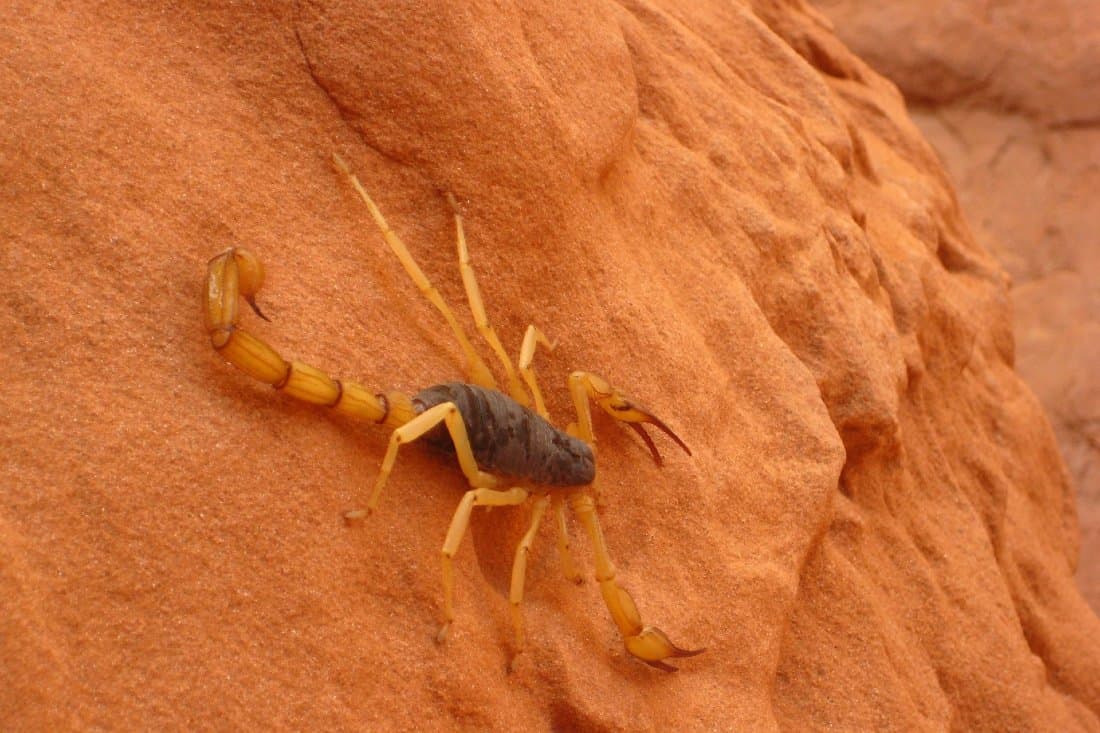
Although they are not as many scorpions as spiders, the park contains at least 4 species of scorpions.
The most frequent type that you are likely to see is the Giant Desert Hairy Scorpion. They spend most of their time under objects, where they hide from enemies – including humans. In most cases, you will find them hiding under rocks and logs where it’s moist.
Summer is the season when you easily encounter scorpions in Zion. They move from their hiding places to enjoy the sun and to feed on other bugs that also become active during summer.
Though they keep away from humans, if they are threatened, scorpions do attack. They defend themselves by stinging and rubbing hairs against your skin. If stung, you will experience a burning sensation, redness, and numbness.
Note: The symptoms are, however, short-lived and will clear in about 2 to 3 hours. The same may not apply to kids. If stung, children can experience serious symptoms including difficulty in breathing.
Do you want to know how to keep scorpions away? Keep reading.
Flies and Bees
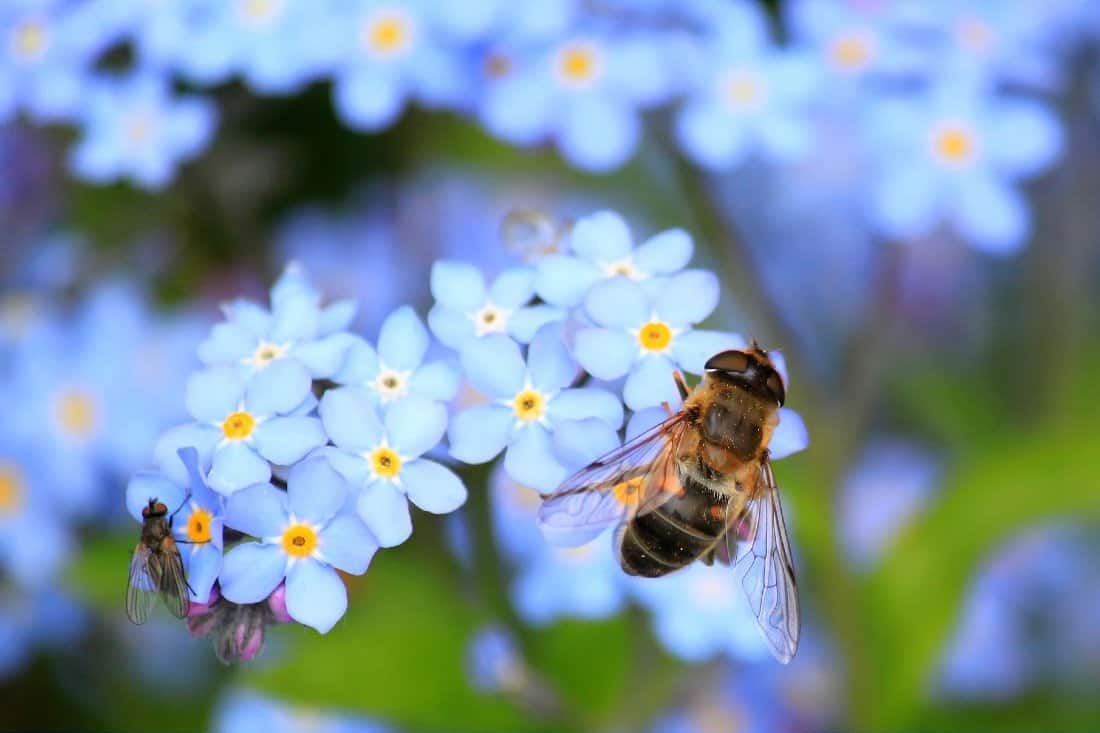
Bees, wasps, and flies are in the same class of bugs known as Hymenoptera. In Zion National Park, these bugs are in the thousands.
That said, bees and wasps usually keep to themselves and will hardly bother you. As long as you keep away from flowering plants in the park, chances are that you won’t come across them.
On the other hand, flies can be found anywhere in the park. Flies live in wooded areas as well as near food sources. They particularly like to rest on wet things including food, drinks, and water sources. A good reason why you should never leave trash lying around in a park.
Zion is also home to large animals such as deers, bighorn sheep, and foxes. Wherever these animals go, flies follow. Droppings from these mammals provide the perfect environment for flies to lay eggs in and multiply.
Trails in Zion that are usually used by animals include Angel’s Landing, Emerald Pools, and Virgin River trails. As such, flies are to be found in the surrounding trails and especially in summer when the animals are most active.
How to Protect Yourself From Mosquitoes and Other Bugs in Zion
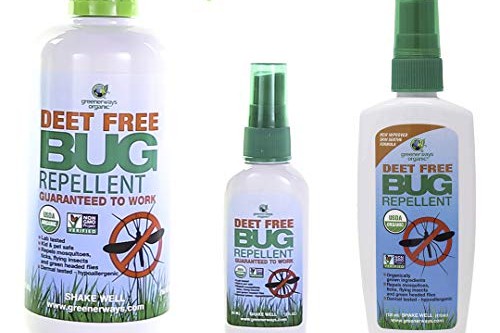
From the above information, it’s clear that you need to use bug spray in Zion National Park. Not just to keep these pesky insects from your belongings but to avoid contracting diseases.
It’s worth noting that bugs like mosquitoes transmit the White Nile virus while flies can spread typhoid fever. So, how can you protect yourself and still enjoy your trip to Zion? Here some important tips:
- Check out the dark corners of buildings for scorpions. You should also ensure that no trash is lying around the camping ground since scorpions can hide under it
- Carry a “Scorpion Light” to help you spot scorpions, spiders, and other bugs in the dark. This is an ultraviolet light that makes certain bugs glow in the dark.
- Always cover leftover food to ensure bugs like flies are not attracted to it. Also, dispose of trash in the trash bin around the park.
- Keep mosquitoes and other bugs away by using mosquito repellent on exposed skin.
How to Use Bug Spray Effectively
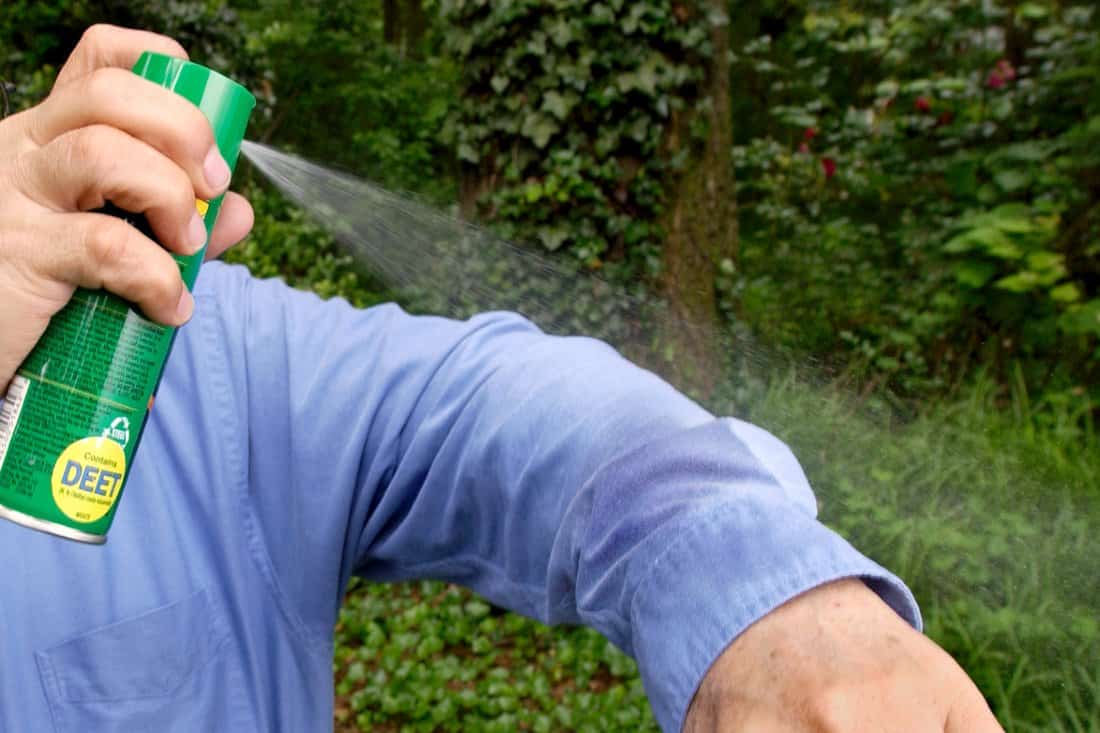
It’s not uncommon to hear people complain that bug spray or repellent does not work. Understandably, the reason could be the wrong use of the products. Here is how to ensure maximum effectiveness:
- Use mosquito repellent every 6 hours.
- Remember to spray in areas such as ankles and elbows that are often forgotten.
- To apply a repellent on your face, use your palm to spread the product – as opposed to spraying directly. Also, ensure that you apply it around your neck and around the ears.
- Do not let kids handle repellents and neither should you spray on them directly. Rather, spray it on your palms and then rub it on their skin.
- Mosquitoes bite through thin clothing. Apply repellent on your clothes to prevent the bites. That said, do not apply DEET-based repellents on nylon and spandex clothing. The reason being, DEET can damage these types of materials, which can end up irritating your skin.
- Do not spray under your clothes or inside your shoes as this may cause irritation. Use on exposed skin only.
- Leave bug spray on when you go to sleep. These sprays are safe to use for over 12 hours.
- Always apply sunscreen first, followed by the repellent.
- Do not use products that combine repellent and sunscreen. The reason being, sunscreen needs to be reapplied more frequently than bug spray, so you could end up using more bug spray than necessary.
Final Thoughts
In conclusion, it’s recommended to use bug spay in Zion National Park. There are many species of bugs and especially mosquitoes that throughout the park. While these bugs are most active at night, you will find them during the day, and all year round.
Related: A Complete US National Park List

